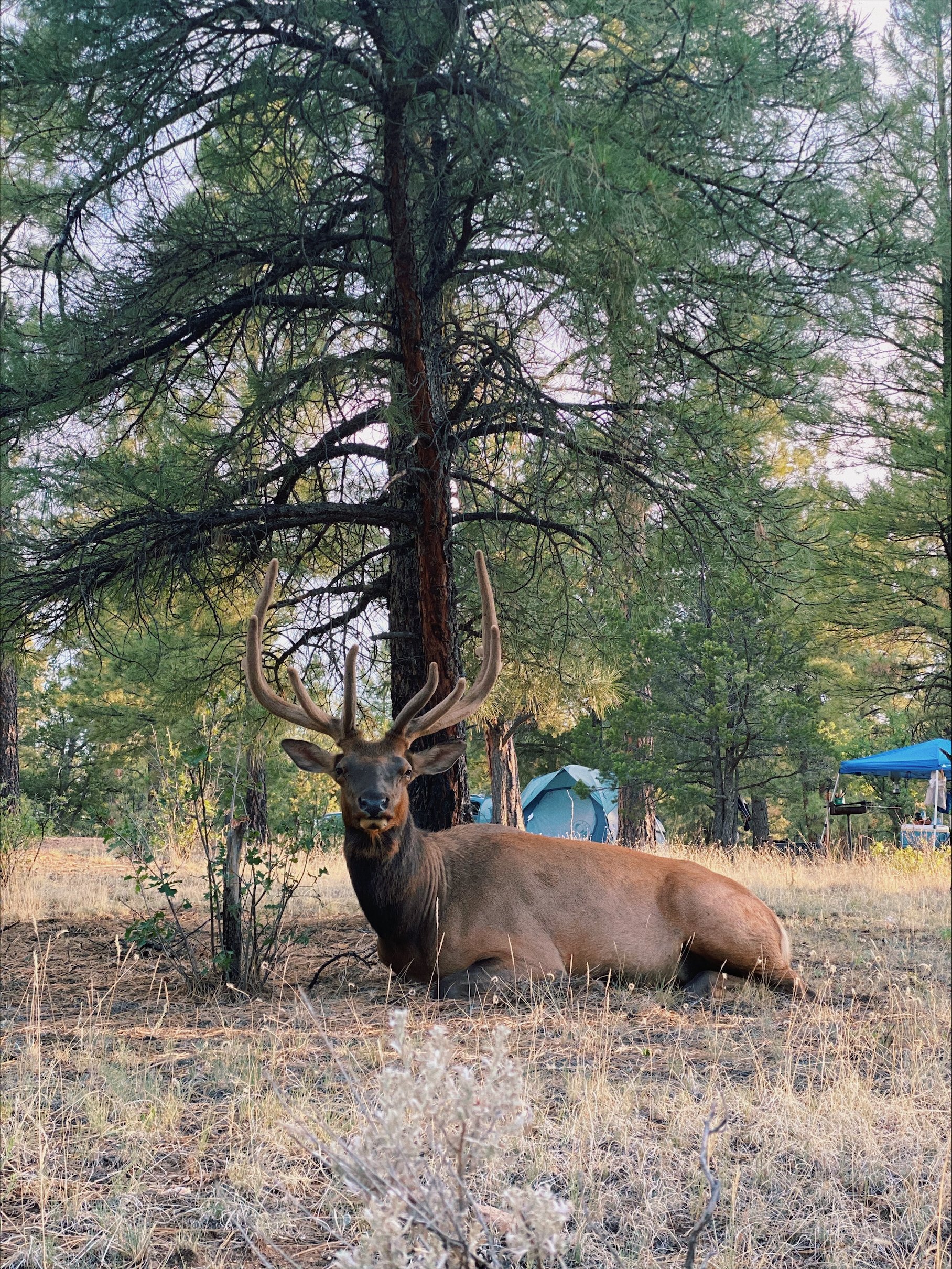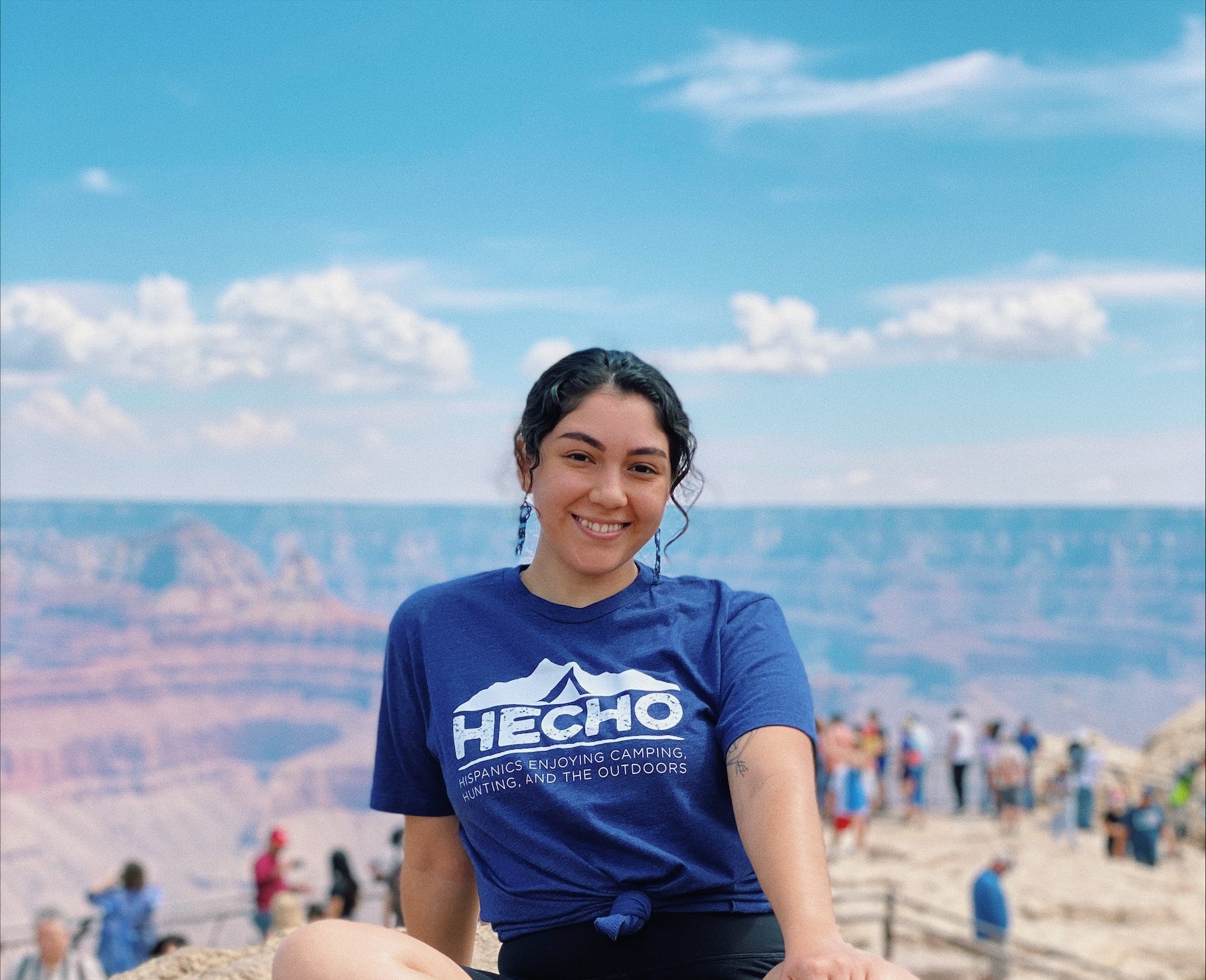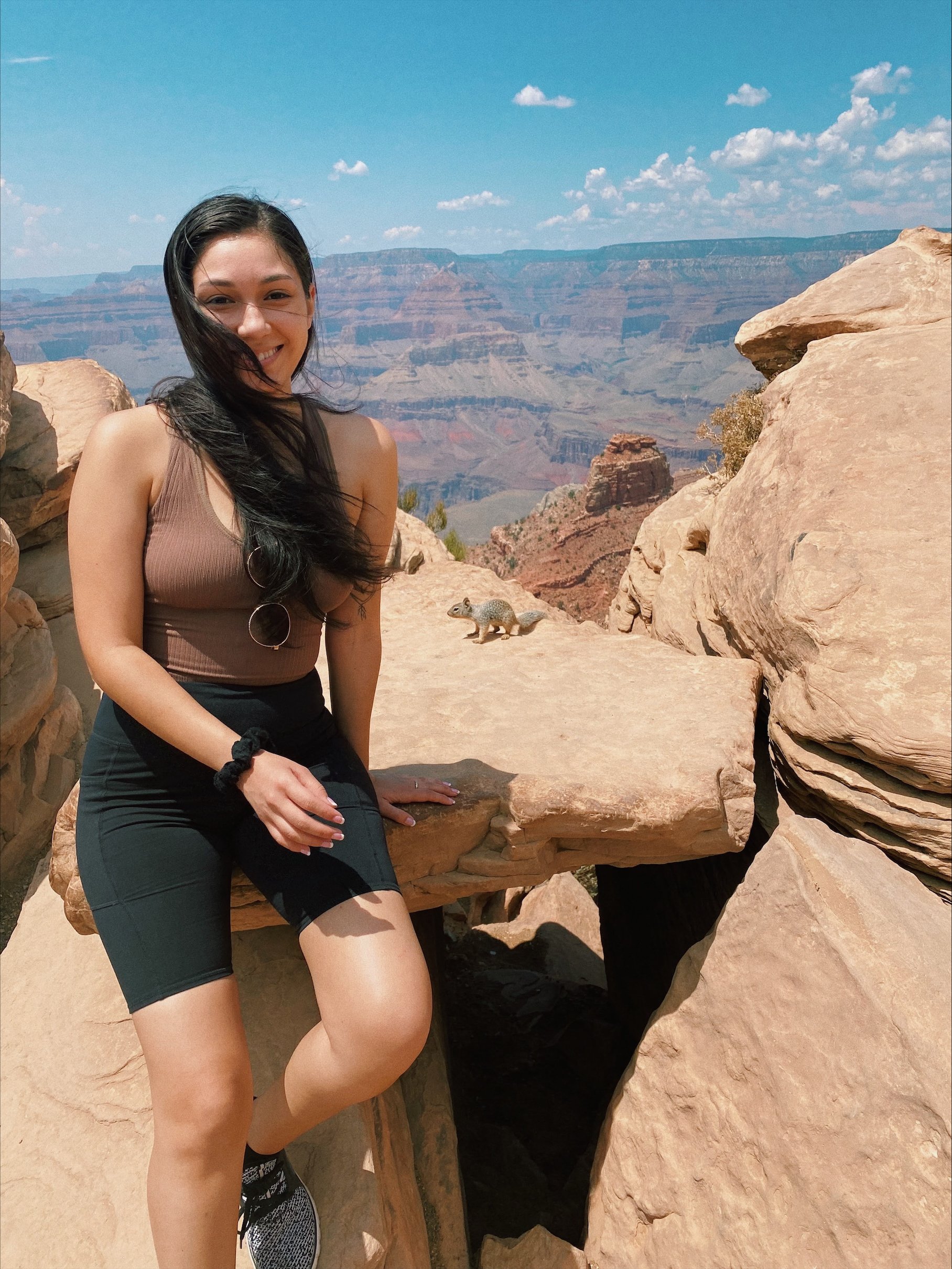What the Grand Canyon Means to All Arizonans Cannot Be Measured
By: Dana Orozco, Arizona Field Coordinator for HECHO.
Like most Arizonans and as HECHO Arizona Field Coordinator, I feel a strong connection to the Grand Canyon. In many ways, it defines the state’s identity. Its ever-evolving beauty defies adequate description but suffice it to say that seeing the vast chasm and its unfolding array of colors is breathtaking.
Any visit is a memorable and moving experience. It is almost spiritual in the emotions derived from gazing out across and down into that expanse.
My first visit came during a camping field trip with my classmates when I was in middle school. Years later, I was privileged to attend a wedding perched on the Canyon’s rim. It was simply gorgeous viewing the nuptials at the overlook. And recently, I went camping with the Arizona chapter of CHISPA League of Conservation Voters. The three-day camping excursion was unbelievable. We saw elk at our campsite and it was incredible seeing the Latino community coming together while enjoying nature.
That visit included guest speakers from the Navajo and Havasupai tribes, both of which have traditional and ongoing ties to the Grand Canyon. There were discussions about uranium mining and the dangers it presents to the surrounding environment and residents living near the canyon. The trip was very educational and a really great time.
I am fully committed to protecting, preserving and conserving this amazing space not just for now but well into the future. It is one of the eight natural wonders of the world. Endangering that in of itself is simply beyond belief. But what the Grand Canyon further means to all Arizonans, not to mention Latinos and the Indigenous population, simply cannot be measured. Its economic tourism impact has supported generations of families.
What’s more, with the ongoing drought threatening the Colorado River and its watershed, there is no reason to be considering any further mining exploitation anywhere within the Grand Canyon’s environs. Any economic benefits that may be derived are so far overridden by even the remotest chance of an environmental tragedy. And this, of course, does not even consider the threat of health issues to area residents and wildlife.
As the Grand Canyon Protection Act continues to wind its way through the Washington D.C. corridors, I am planning more extended excursions to the Grand Canyon as I continue to seek an ever-greater understanding of this amazing space. I also want to further encourage more Latinos, Latinas and all peoples of color to make a pilgrimage to the Grand Canyon to find their own spiritual connection.





